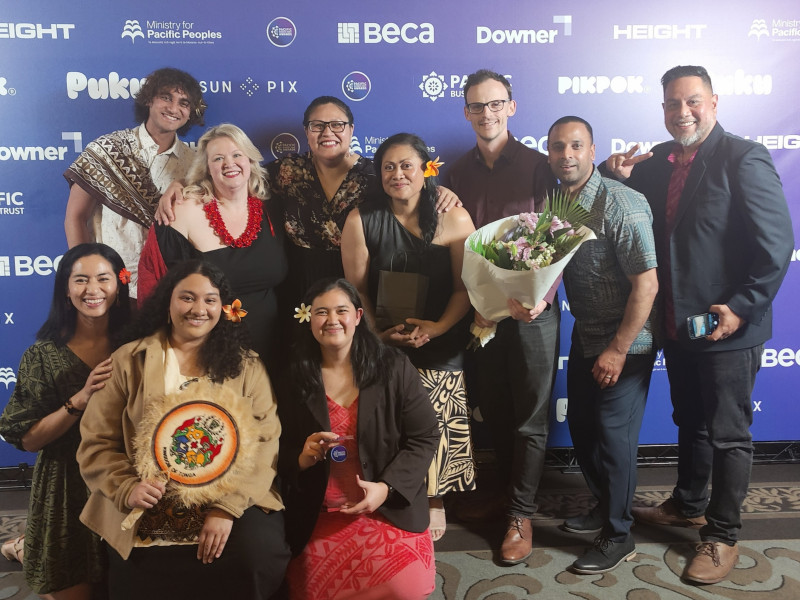Pacific Kids Learning takes two wins at Pacific Business Awards
Pacific Kids Learning takes two wins at Pacific Business Awards

Pacific Kids Learning has won the Pacific Community Impact Award at this year’s Pacific Business Awards, a category sponsored by the Ministry for Pacific Peoples.
The leading digital learning resource for all young Pacific learners globally, Pacific Kids Learning (PKL) also took out the Technology & Innovation award. This rare double win recognises the organisation’s impact on language, culture and digital learning in Aotearoa New Zealand.
The Pacific Business Awards, organised by the Pacific Business Trust, honour Pacific entrepreneurship and creative leadership across Aotearoa, highlighting businesses that drive growth, give back to communities, and maintain cultural identity.
The Ministry for Pacific Peoples sponsors the Community Impact Award to recognise projects delivering measurable benefits for Pacific peoples.
This approach aligns with the Ministry’s focus on revitalising Pacific languages and supporting intergenerational learning. By enabling families to learn together in safe, culturally affirming spaces, PKL contributes to a broader movement to preserve and celebrate Pacific heritage.
PKL’s twin awards reflect both community-centred practice and technological excellence. Judges commended the Pacific Digital Library, PKL’s ad-free platform of bilingual animations and learning packs, for its role in delivering safe, high-quality language resources to children and families.
Language begins at home
Theresa Tupuola-Sorenson, co-founder and Education Director of Pacific Kids Learning, says supporting parents is central to language revival.
“Language and culture begin at home and parents are a child’s first teacher. Yet many parents today experience language loss, often accompanied by a sense of language shame,” says Theresa.
“By creating digital resources accessible anytime and anywhere, families can learn together in the privacy of their own home, rebuilding confidence, and strengthening the intergenerational bonds that keep our cultures alive,” Theresa adds.
PKL’s flagship platform hosts almost 350 bilingual animations in 11 Pacific languages plus English and offers downloadable activity packs co-designed with teachers and language experts.
“Anyone can create a free login for this platform and the resources are free to access all across Aotearoa, which include songs, stories, digital flashcards and activity packs,” Theresa says.
Grassroots storytelling
The awards were an unexpected but meaningful recognition for the PKL team. “It was completely surprising, however we are grateful for the recognition. To win not just one but two awards is a true testament of the hard work and unwavering passion we have for digital storytelling.
“The awards recognise all the storytellers in our grassroots communities, students, educators, parents, and our elders who have entrusted us to digitise their stories, therefore sharing and transmitting Indigenous wisdom across the world with respect and mana,” Theresa says.
The Community Impact Award commended PKL’s village-centred production model that embeds Pacific values of respect, reciprocity, shared leadership and service, ensuring stories are community-led from concept to animation. The Technology & Innovation award highlighted the Pacific Digital Library as a one-stop shop for digital language resources, noting its ad-free environment and child-safe navigation.
The foundations remain
Looking ahead, PKL plans to expand language coverage, prioritise content for Solomon Islands communities, extend resources for older students, and enable grassroots storytellers to digitise material sustainably. “And look out for our feature film coming out in April 2026,” Theresa adds.
Theresa says the proverb “E sui faiga, ae tūmau fa‘avae” guides PKL’s approach. This translates as “methods may change, but the foundations remain”, demonstrating how they embrace new technologies and digital formats to share and preserve stories while keeping the core cultural values, practices and responsibilities that anchor Pacific communities intact.
The proverb captures PKL’s belief that innovation should serve and reinforce long-standing cultural foundations, rather than replace them.
